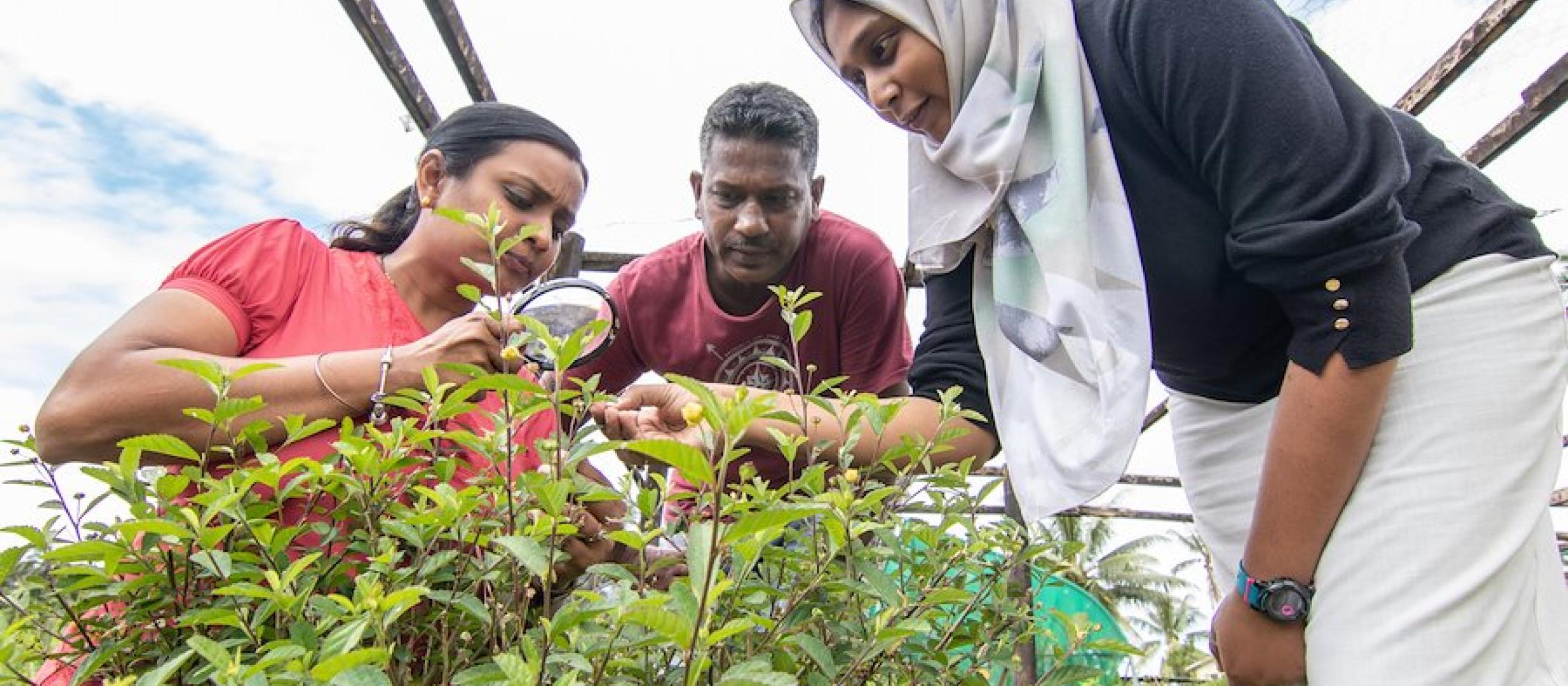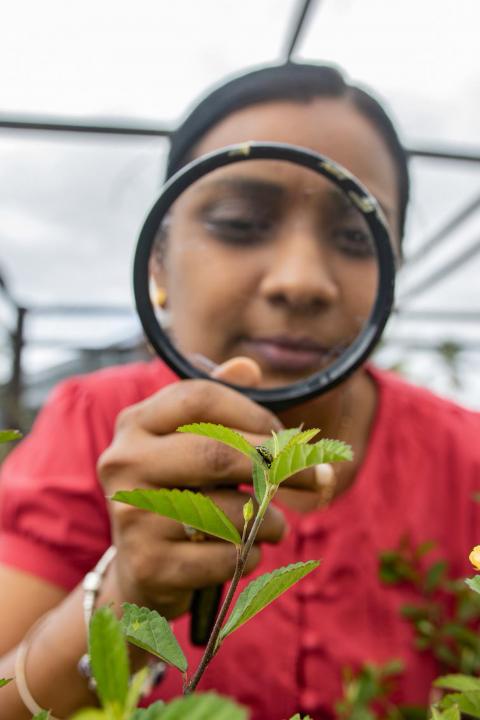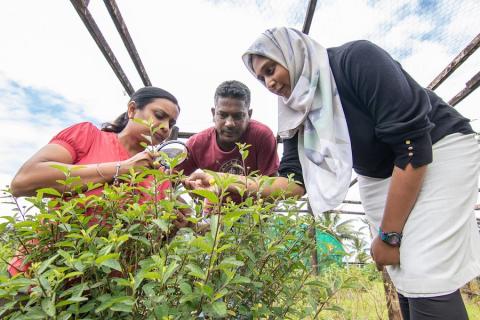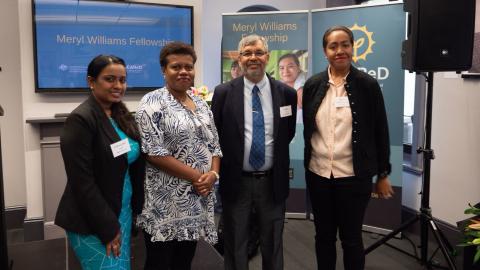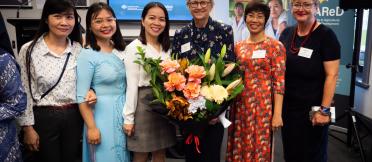- HomeHome
-
About ACIAR
- Our work
- Our people
-
Corporate information
- ACIAR Audit Committee
- Commission for International Agricultural Research
- Policy Advisory Council
- Agency reviews
- Executive remuneration disclosure
- Freedom of information (FOI)
- Gifts and benefits register
- Information publication scheme
- List of new agency files
- Contracts
- Legal services expenditure
- Privacy impact assessment register
- Commonwealth Child Safe Framework
- Benefits to Australia
- Careers
- 40 years of ACIAR
-
What we do
- Programs
- Cross-cutting areas
- Resources
- Where we work
-
Funding
- Research projects
- Fellowships
-
Scholarships
- John Allwright FellowshipScholarships to study in Australia for ACIAR partner country scientists to have Australian postgraduate qualifications
- ACIAR Pacific Agriculture Scholarships and Support and Climate Resilience Program
- Alumni Research Support Facility
- Publications
- News and Outreach
Date released
16 July 2020
Key points:
- The Meryl Williams Fellowship is funded by ACIAR and supports female international agricultural researchers and scientists in target countries in Asia and the Pacific to improve their leadership and management skills.
- COVID-19 has led to worldwide travel restrictions and has had an impact on the studies of future and emerging scientists doing the fellowship.
- However, this has not deterred one of the 2020 fellowship recipients in Fiji from starting her research locally.
Countries around the world have implemented travel restrictions with many completely sealing their borders to contain the spread of COVID-19.
Combined with social distancing, the effects on agricultural research worldwide have been significant including for scientists participating in ACIAR capacity building initiatives.
To address this, ACIAR fellowship candidates have been permitted to continue to remotely start their career development activity in their home countries instead of having to travel to Australia.
In the Pacific, a Fijian Research Officer at the Plant Protection Unit in the Ministry of Agriculture is determined to use innovative methods and resources to pursue her fellowship. Aradhana Deesh, is one of 19 recipients of the prestigious Meryl Williams Fellowship (MWF) for the inaugural 2020 cohort.
BUILDING WOMEN’S LEADERSHIP IN THE AGRI-FOOD SECTOR
Mrs Deesh is based at the Koronivia Research Station in Nasinu and leads a research team that is developing best management options for weeds affecting agricultural production systems in Fiji using chemical, biological and cultural options. She was selected for the MWF because of her commitment to positively impacting agricultural development, and her research excellence and demonstrated capacity for leadership and innovation.
The MWF is a 15-month program for women in agricultural research that includes executive leadership workshops, mentoring, network building and professional development. It was developed by ACIAR in response to gender inequity in agricultural research globally and is consistent with the organisation’s Gender Equity Policy and Strategy.
The Fellowship contributes to more productive and secure food systems in developing countries by supporting women to get greater access to resources and decision-making power. It is delivered in partnership with the University of New England and Coffey International.
In addition to working with individual women, the program supports the institutions that they work in to identify and address systemic barriers to women’s advancement.
The MWF comprises a 10-day immersive camp in Armidale followed by a mentoring workshop in Sydney and an up-to three-month career development activity at a relevant Australian or international institution.
Mrs Deesh has more than ten years’ experience in the Plant Protection Unit and completed her a 10-day immersive camp and mentoring workshop earlier this year in Australia.
While there she had the opportunity to network and learn from the training facilitators and MWF recipients. ‘The content of the training was designed in a way that it enabled me to know my strengths, and how I can bring about positive changes in the workplace to improve individuals’ performances by empowering both women and men,’ she says.
COVID-19 IMPACT AND THE WAY FORWARD
Mrs Deesh was selected to undertake the three-month MWF career development activity at Biosecurity Queensland—Department of Agriculture and Fisheries (QDAF), Brisbane, Australia.
Due to border restrictions brought on by COVID-19, Mrs Deesh’s travel plans have been postponed. However, this has not deterred her from pursuing her career development activity remotely by starting her research locally on the weed Koster’s curse (Clidemia hirta).
‘Weed biological control is an area of research I am trying to revive. Fiji has been very successful in the Pacific in this regard in the past but recently no major work has been carried out,’ she says.
Koster’s curse is a highly invasive perennial shrub that invades disturbed natural forests, spreading rapidly, shading out other plants and preventing regeneration. Normally found swiftly growing in pasture fields it colonizes open areas such as riversides, roadsides and tree plantations. It can tolerate a wide range of climatic conditions and can invade undisturbed habitats.
The natural biocontrol agent for Koster’s curse is Clidemia thrips (Liothrips urichi)- a pest found in greenhouses and indoor/ outdoor gardens which attacks the young succulent growth of the shrubs causing tip die-back.
‘Using biocontrol agents for weed management will be cost effective and environmentally friendly,’ says Mrs Deesh.
The weed and biocontrol agent insect are both present in Fiji and QDAF is interested in importing the thrips to Australia – where Koster’s curse is also a problem – for further research. However, due to the travel ban that won’t be possible, so Mrs Deesh is conducting similar research in Fiji to better understand the thrips and how they control Koster’s curse.
According to Mrs Deesh’s mentor Dr Michael Day, Principal Entomologist at QDAF, the project was a perfect fit for Mrs Deesh.
‘Aradhana had already seen the insect in the field and had started growing the plants,’ he says. When travel to Australia was shut down Dr Day then started to look at research Mrs Deesh could still do in Fiji to gain experience, while being supervised from Brisbane.
‘Currently, we are looking at the biology and life cycle of the insect as this gives us a better understanding when we design other experiments,’ he adds. QDAF has been supporting Mrs Deesh remotely through email and WhatsApp as her research progresses.
In addition to her MWF, Mrs Deesh is supporting the Ministry of Agriculture team to upgrade their first ever biocontrol nursery with separate cubicles to rear different biocontrol agents on specific host plants. She has high hopes for the rearing of biocontrol agents as it will be beneficial for other Pacific island countries who face similar weed problems but do not have biocontrol agents.
‘If we can successfully implement the nursery, Fiji will be in a position to mass produce and supply biocontrol agents as needed,’ she says. ‘I consider myself lucky to have brilliant mentorship from QDAF.
‘They have been able to support and inspire me to continue my research remotely and innovatively, I look forward to going back and sharing my findings with them. I am honoured to be part of the MWF and I hope to inspire other Pacific women to turn challenges into opportunities.’
